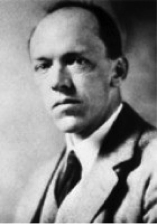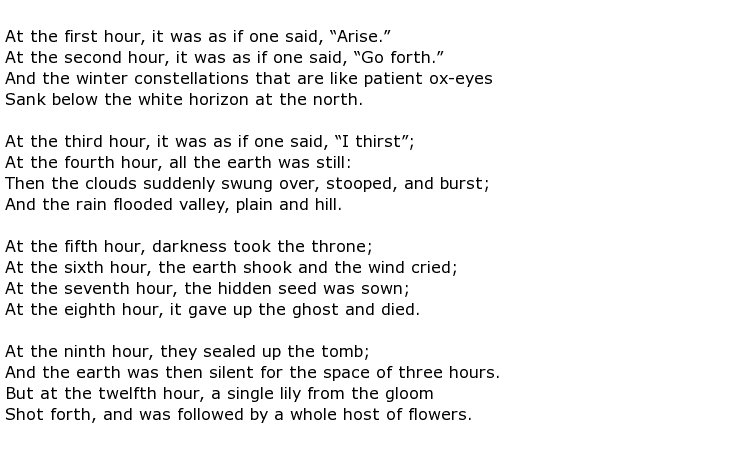 John Gould Fletcher was an innovative American poet who wrote much of his poetry in the imagist style. This was reinforced when he met the “imagist champion” Amy Lowell while in London. Fletcher holds the honour of being the first “southern” poet to win the Pulitzer Prize, for his 1938 collection called Selected Poems. He was also well known as being one of the “Southern Agrarians”, also known as “The Fugitives”. This was a group of poets who wrote lamenting the loss of the agrarian way of life and traditional “southern values” across the United States.
John Gould Fletcher was an innovative American poet who wrote much of his poetry in the imagist style. This was reinforced when he met the “imagist champion” Amy Lowell while in London. Fletcher holds the honour of being the first “southern” poet to win the Pulitzer Prize, for his 1938 collection called Selected Poems. He was also well known as being one of the “Southern Agrarians”, also known as “The Fugitives”. This was a group of poets who wrote lamenting the loss of the agrarian way of life and traditional “southern values” across the United States.
John was born in January 1886 in Arkansas into an affluent family whose wealth was based on banking and the brokering of cotton. John’s father was 55 years old when his son was born so, not surprisingly, there was no strong bond between the two. He took more his mother’s side and she encouraged his artistic leanings from a very early age. It was though, essentially, an unhappy childhood and caused John feelings of melancholy that some say he never really shook off during the rest of his life.
He lived very much a private existence. His main pastime was reading serious literature such as that written by Oscar Wilde, Charles Baudelaire and Edgar Allan Poe and he also began writing his poetry although no one ever saw the results in those early years. He was sent to Harvard but did not enjoy this time. The social side of university life passed him by completely and he decided to abandon his studies completely just before the finals were due in 1907.
A career in writing was all that he was interested in and, to this end, he took off for Europe, spending two years in Italy before moving on to London. Here he tried hard to get some of his work published, without immediate success. He finally brokered publication of some of his work at his own expense but it was not greeted with much enthusiasm by the literary critics. Indeed he actually had all of this work pulped shortly after and took off once more, this time to Paris. He soon fell under the spell of impressionist artists such as Gaugin and Picasso and the great composer Stravinsky.
All of this had a dramatic effect on Fletcher and meetings with already established writers such as Ezra Pound and W B Yeats inspired him further to produce much better poetry. A collection called Irradiations was the result of his work in Paris and he returned to London where he began his association with Amy Lowell. There followed a successful period of published poetry for Fletcher which was interrupted when the First World War broke out and he returned to America. Here he moved in another literary direction, attempting to write in the Japanese haiku and tanka style, without too much success.
During the early 1920s Fletcher was again living in England but soon moved on once more to Paris where he found himself depressed by the growing industrialisation of Europe, and the rest of the world in general. He soon associated himself with “The Fugitives” and contributed to the group’s manifesto I’ll Take My Stand in 1930. He was back in the United States by 1933 and he wrote regularly from then on, culminating with his Pulitzer prize in 1937.
His poem Spring is reproduced here and is a vivid description of how seed germinates in the darkness of the earth and then suddenly the flowers explode into life as the new Spring season emerges from the darkness of winter:

Although he had returned to Arkansas, seemingly for good, his mind was troubled. Living in a material world weighed heavily on his soul and he tragically drowned himself in a pond near his home, apparently in a state of severe depression.
John Gould Fletcher died on the 10th May 1950, aged 64.

